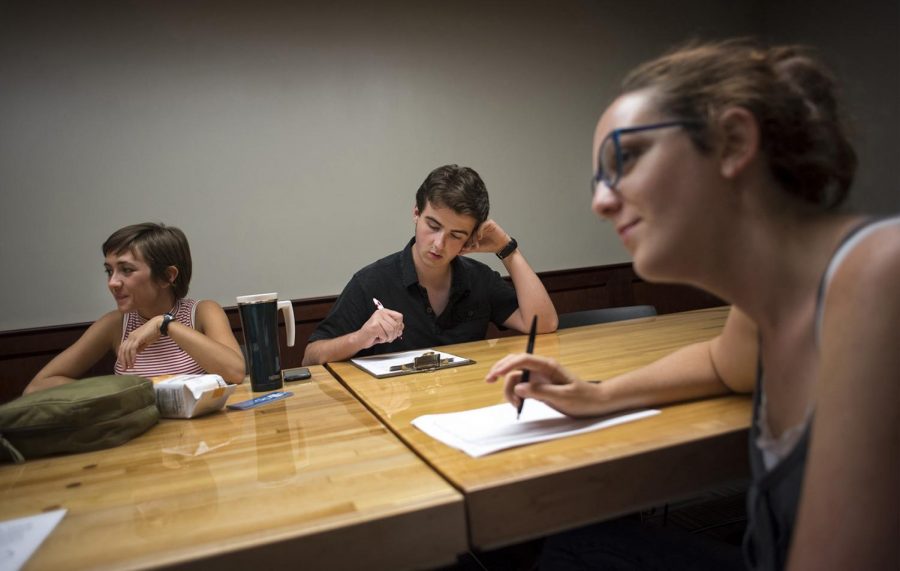Student group challenges war on drugs
September 3, 2015
On Tuesday, five students and one professor sat around a table in Downing Student Union discussing current policies on drugs and making plans to raise awareness on campus.
They are members of WKU’s Students for Sensible Drug Policy (SSDP), and they all have the goal to change various aspects of the current War on Drugs they believe is being waged against Americans.
The headquarters of SSDP is located in Washington, D.C., and it focuses mainly on campaigns that concern both drugs and students.
WKU’s SSDP has adopted similar ideals. Right now, they are focusing on raising awareness about a policy they worked to get passed in the Student Government Association several years ago. It’s called the Responsible Hilltopper Policy, and it’s a version of what is commonly called a good Samaritan law.
“A good Samaritan law says that if you call for help because you or somebody that you are around is overdosing on drugs or alcohol, a good Samaritan policy says that you won’t be subject to severe disciplinary sanctions at your institution,” said Litchfield senior Kelly Cannon, the president of SSDP.
The Responsible Hilltopper Policy says if students call for help for a medical emergency, they can call EMS, campus police, Bowling Green police or residence hall authority figures and not receive punishment.
“You’ll get a class, a drug safety class or something that you’re required to take,” said Cannon.
To date, this is the group’s biggest achievement, but even though the policy has been in place for nearly four years, most students have never heard of it.
That’s one of the club’s goals this year: raise awareness on campus about the Responsible Hilltopper Policy.
“These things that say if you call for help you won’t get in trouble obviously don’t work if people don’t know about them, and based on some canvasing that I personally have done, people don’t know about the policy,” said Cannon.
SSDP’s main obstacle is dealing with WKU’s Zero Tolerance Policy, a policy that says any student caught using, possessing, manufacturing or selling drugs will face serious disciplinary actions such as being kicked out of campus housing, suspended or expelled from WKU.
The Responsible Hilltopper Policy is mentioned during M.A.S.T.E.R. Plan, but most students either don’t pay attention or forget soon after they first hear about it. They tend to walk away remembering only the Zero Tolerance Policy. The result is a campus full of students who may be afraid to call for help if someone they are around overdoses, Cannon said.
To help raise awareness about the policy, the members of SSDP will participate in some informational events for students.
Their next big event is a tabling event at The Big To-Do Music and Arts Festival in Bowling Green, where they will be passing out information to attendees. They hope to teach people that the War on Drugs tends to disproportionately affect minorities and people in poverty. In SSDP’s eyes, this trend is unfair.
Ideally, the people who come up to the table will walk away with a tiny piece of the passion that has driven these students to join SSDP.
“I’ve seen [the War on Drugs] play out on a personal level, but I’m also a social worker, so I see it with a lot of the families I work with,” said Kayla Roach, a graduate student from Bowling Green. “It’s just not okay, and I want to do something about it even if it just starts somewhere small.”


























